There are simply too many podcasts stretching across far too many hours of content to possibly cover them all. What’s more, by the very nature of podcasting, there tends to be a splintering effect where reaching anything resembling consensus on what makes for “the best” of podcasting becomes nearly impossible. As a result, we present to you our personal favorites from the decade, the ones that meant everything to our staff and defined the 2010s for us. Thanks to all the brave podcasters who kept us moderately more comfortable on our commutes and gave us the illusion of having friends.
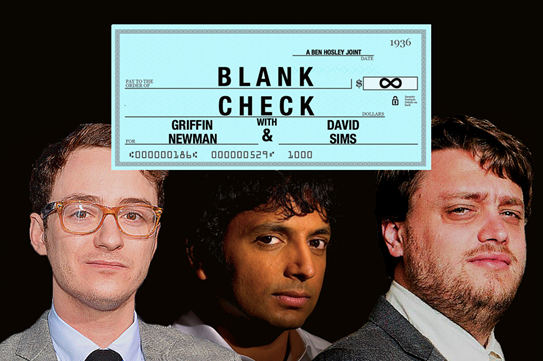
BLANK CHECK
BLANK CHECK WITH GRIFFIN AND DAVID started up about halfway into the decade, which makes it a peculiar choice for this prompt. And yet, I can’t think of another podcast so perfectly in the middle-point between my love for riff-heavy, absurdist, familial comedy and genuine, borderline romantic film analysis than this one. Perhaps a level of irony removed from HOLLYWOOD HANDBOOK, but equally as organic in the palpable friendship between the hosts, BLANK CHECK is just an oddly easy listen. David Sims, film critic for The Atlantic, and Griffin Newman, comedian and actor from the greatly underrated THE TICK, and their producer, the delightful and proudly scummy Ben Hosley, make a perfect trio of personalities, at odds in the right odd couple (trio) ways and lovingly united when it counts. Guests vary from the film criticism world to notable comedy personalities, managing to get goofy and revel in ridiculous humor, with someone always being willing to hold the anchor and pull everyone back into roughly on-track discussion of the topic on hand. But honestly, once you get into it, you’ll equally enjoy the show at its, as the hosts put it, “loopiest.” It’s refreshing!
It’s a comfortable but delightfully weird romp, often rooted in a premise that looks at the world of cinema like a sport, which might sound like an absolute nightmare to most parties. They might be right, sure, but the narratives explored in following directors from their humble beginnings as artists bursting into the industry, using their platform on grander scales and potentially shaping the industry and art form on a worldly level are fairly riveting! The hosts dub themselves “connoisseurs of context,” giving proper light to these careers and specific creative moves within them. It makes the stories of directors like Tim Burton, Ang Lee, M. Night Shyamalan, Katheryn Bigelow, and Hayao Miyazaki larger yarns to unravel, exploring not only their unique worldviews and ambitions, but also the overall relationship of mass media and the world over the past couple of decades. You see the specific waves made, and the resulting landscape of some of the hugest swings in film history, and thanks to the hosts’ passion for every little bullet point, it’s very easy to ascertain newfound appreciation for a lot of them, or at least some more respect for more hidden outings that might just be your new favorite film.
The podcast hits its peak when you can feel the passion permeating through the speakers. Ang Lee’s HULK, Michael Mann’s MIAMI VICE, and the Wachowski Sisters’ SPEED RACER and CLOUD ATLAS in particular have been tentpole episodes, where Griffin, David, and guests advocate for misunderstood masterpieces, giving them a second light in the culture. You get an idea of the magic these directors attempted to pull off, with almost the entire world backing them because of past major successes, and the resulting blow’s potential success or abject failure to connect with the masses. For example, SPEED RACER just about had a second wind of relevancy and recent appreciation right in time with this podcast’s reappraisal, making for a heartwarming welcome back when THE MATRIX 4 was announced. It can be equally heart-wrenching to discuss, for example, Ang Lee’s attempts to deliver high frame-rate filmmaking via blockbusters as a tool of empathy and endearing poetry. The hosts and guests make compelling cases for the art form, but the world proves itself to simply not be interested or ready. But this show’s willingness to see what’s going on behind these decisions gives stakes and heart to a medium that often binds us all.
Hell, there’s a near real-time redemptive arc for M. Night Shyamalan occurring throughout the course of the podcast, culminating in both hosts loving GLASS, and discussing it as a wonderful new chapter in this artist’s complicated story. Listeners got to pick what directors the team would cover next, giving us series on Nancy Meyers and Jonathan Demme, both of whom have produced some of the more interesting discussions the show has ever had. The show and its hosts have developed spirited explorations of art with equal levels of spirit coursing through its veins. Follow along and you’ll essentially be part of a very dedicated, but fairly rewarding, film club, learning from the good and the bad in equal measure of how the filmic medium can be used in its best and worst ways. It’s nerdy as all Hell, but the barrier for entry feels somewhat low, able to encourage and incite a love for cinema in pretty much anybody. It’s a show about having a history with the medium and becoming part of it in some way. If you’ve ever received a rush of love from engaging with a film in the past and wanted to chase that high to some degree, this is just the show for you. And if you just like charming weirdos bickering with each other and making fun of Marc Maron, this is also yours. [Rocky Pajarito]
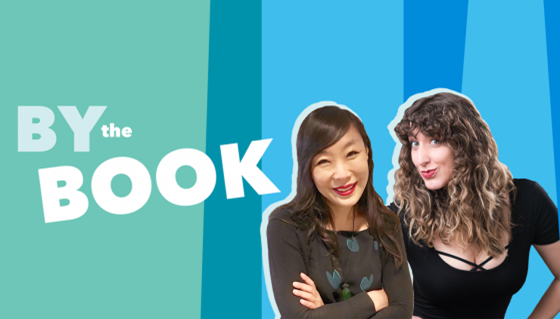
BY THE BOOK
If you’ve ever walked past a shelf of self-help books and thought, “Do any of these books ACTUALLY help anyone?,” this podcast is for you. Best friends and co-hosts Jolenta Greenberg and Kristen Miesner pick up a different self-help book and live by its words religiously for two weeks, reporting on what they learned and determining if the book actually changed their lives. The ladies begrudgingly become early risers as per Hal Elrod’s Miracle Morning, try to master the Four-Hour Workweek, and organize their homes according to Marie Kondo’s famous book The Life-Changing Magic of Tidying Up. BY THE BOOK never paints all peoples’ experiences with self-help with a broad brush. Instead, the ladies focus on their own personal experiences as married women trying to incorporate these principles into their day-to-day lives and relationships.
The more you listen to the podcast, the more you can relate to the show’s hosts, especially as a woman. They practice self-awareness and radical vulnerability that is so rare to find today. Jolenta specifically opens up about her body dysmorphia, past trauma, and negative looping thoughts that are painfully relatable to many women, but in a way that makes you feel less alone. Though I’ve never met either of these women, I deeply care about their happiness, hopes, dreams, and self-development in a way I did not think was possible with complete strangers. They take feedback from their listeners and really build a community that calls people in and encourages us to make connections and share our stories and successes. Which leads to an interesting conclusion: maybe the best self-help isn’t a book at all. Maybe the real self-help is just found in reveling in the honesty and transparency of real women and in finding that common thread that holds us all together. [Lauren Chouinard]
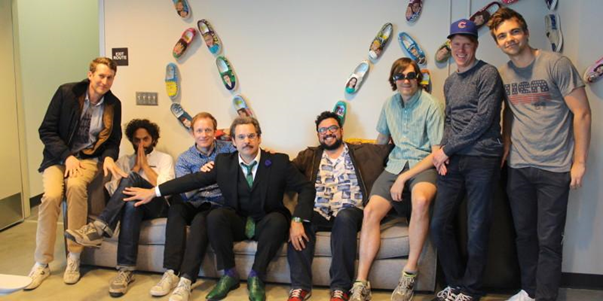
COMEDY BANG! BANG!
Most shows that have existed for as long as COMEDY BANG! BANG!, which celebrated its 10th anniversary earlier this year, are almost nothing but in-jokes and derivative rehashing of the show’s prime. And yet arguably CBB has only gotten better over time, balancing as impressive a roster of regulars as any comedy podcast on the internet while finding time to continually showcase new improvisers and up-and-coming talent. While certainly in-jokes are going to be a part of the show’s DNA to some reasonable degree depending on which episode you select, host Scott Aukerman makes sure to have new characters and fresh guests to keep things accessible, a word you can’t use with the podcast’s contemporaries. Even if you’re still going to smash the download button on established talent like Andy Daly, Jason Mantzoukas, and Paul F. Tompkins, it’s been heartening to see performers like Carl Tart, Lily Sullivan, and Zeke Nicholson (among so, so, so many others) get opportunities to quickly find their footing. Aukerman remains the king of understanding how to play the role of neutral, self-aware host who can still tug at the fabric of characters’ idiosyncrasies, ironically an unsung hero frequently on his own podcast. The show rightfully got lots of press surrounding its 10th anniversary, but it’s an institution for a reason beyond its longevity and is unquestionably the gold standard for improvised comedy podcasts. Looking for a place to start? Try unhinged comedy masterminds Thomas Middleditch and Horaitio Sanz on episode 544. [CJ Simonson]
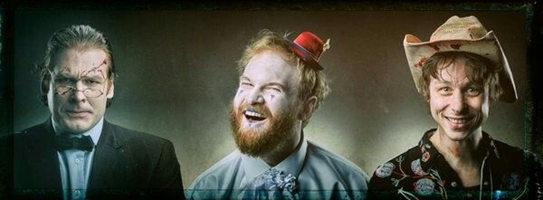
LAST PODCAST ON THE LEFT
True crime is by its very nature a ghoulish genre. It’s fucked up to be entertained by stories of the murders of other people, yet it’s something millions of us indulge in to some extent. There was an explosion of true crime podcasting this decade, but no one figured out how to devilishly embrace the morbid realities of true crime quite like LAST PODCAST ON THE LEFT. Sure, the show in its early stages was guilty of over-indulging in edgy humor that bordered on disrespect for the victims, but what’s been remarkable is how well the hosts have grown past it over time to create one of the most entertaining and informative podcasts around. While the show undeniably requires a high tolerance for gruesome details, it’s managed to stay focused on humanizing its subjects while also mercilessly making fun of the serial killers they often cover. What really sets the show apart is the basic recognition that the reason why we’re all so fascinated by serial killers and other stories of extreme violence comes down to the fact that they become absurd and incomprehensible at a certain level: joking about them is the only way to wrap your mind around the fact that they exist. Without Henry Zebrowski’s elaborate, very funny characterizations, I don’t know that I could make it through some of the stories of the worst serial killers in human history.
The show most likely will be with us for a long time to come, they just signed a deal with Spotify and seem to be getting ready to do even bigger and better things. (As much as I’m worried about Spotify’s aggressive moves to take over the podcasting world, it’s hard not to be happy for these three freaks I’ve followed for so long.) What’s more, the show’s impressive back catalog is timeless; if you’re brand new to the show there are literal days of content to go back and absorb, you can spend weeks just listening to the classic old episodes. (I’d recommend starting with their Edmund Kemper series or their Jonestown series, personally.) While being a show that is so driven by morbid humor, the trio of Ben, Henry, and Marcus have also managed to endear themselves to their legions of fans; it’s been deeply heartwarming to feel like all three are close friends after all these years, and it’s very apparent that they genuinely appreciate all of their fans. For such a morbid show, it’s managed to become a beacon of positivity for some extremely dark people, which is enough for me to say “Hail Satan!” [Carter Moon]
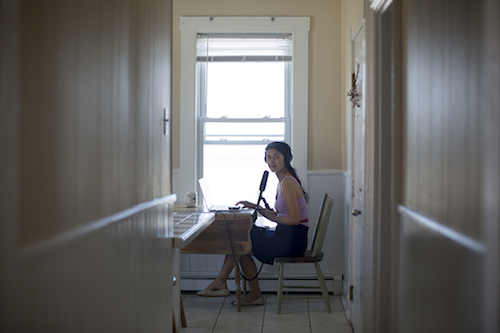
MILLENNIAL
I’ll admit that I’m a little biased on this one. When Megan Tan’s debut, self-made podcast MILLENNIAL first appeared, chronicling the time of transition between college and career, I myself was spending the summer in North Carolina, biding my time until I moved out west to find a job I didn’t yet have. Years and 49 episodes later, on the eve of my final day at my first real job in the industry, I listened as Megan Tan announced the end of MILLENNIAL and a readiness to pursue other opportunities. As I walked out the doors of my office for the last time, it felt like some sort of fate. It’s not just the timing that connected me to the show, however, but how it so beautifully seem to capture emotions I was feeling, ushering in a new wave of how personal podcasts could feel.
Part audio-diary and part interview-series, the show grew into a few different variations during its young lifespan (S1 gearing towards the former and S2 and S3 towards the latter), but arguably its most compelling days occurred towards its infancy. As Tan explained in the show (via narration she allegedly recorded in her closet), the podcast was a project she decided to take during this time of unknown. Through the episodes, audiences listened as she not only grappled with career changes, money issues, and relationship stress, but with the making of the podcast itself. This not only added a meta-like spin to the show, but also offered an insight into the struggles of cultivating creative work. As Tan grew and changed, the show followed suit. After S1, Tan pulled back as the central figure of the episodes, working instead to create a more holistic view of what it meant to be a millennial in a variety of situations. While admirable and solid, the weight of the next seasons never quite lived up to the first, a truth that Tan herself acknowledged.
Though the subsequent seasons failed to reach the popularity as the debut, Tan succeeded in creating a piece of work that not only exemplified the creative process, but brought podcasting to a new level as well. It allowed listeners inside personal moments that showed a lot about Tan, but also a lot about us. [Anna Thorup]
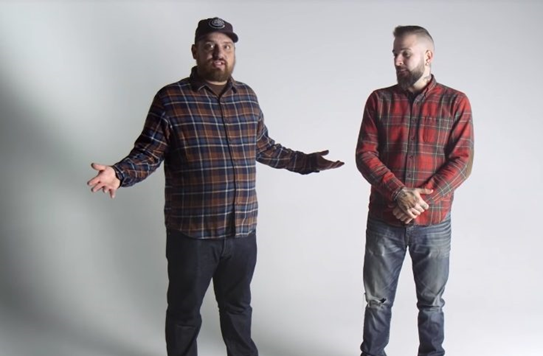
STREET FIGHT RADIO
It’s gotten to the point where whenever I meet new people, I inevitably have to explain why and how a podcast has become such a huge part of my life. A significant portion of the people I talk to every day are people I connected with through the STREET FIGHT fandom; some of my closest friends started out as strangers in the STREET FIGHT Facebook group. This anarcho-comedy podcast hosted by two dads from Columbus, Ohio who love nu-metal, wrestling, and talking shit about bosses has somehow morphed into a thriving community that has created a whole subgenre of far-left comedy podcasts. The promise of podcasting was always rooted in the idea that anyone could start one, that if you were compelling enough, you could talk into a microphone from your basement and reach a huge audience. Through a combination of grit, determination, and luck, Brett Payne and Bryan Quinby managed to build up a sustained audience of dirtbags and misfits who will no doubt be loyal for as long as the pair decide to keep doing the show.
After eight years, the show is still improving and finding new ways to get better and more interesting. In the past year, the show has done new mini-series and figured out how to make very funny video commentaries on their Patreon. There are a million ways that this show could have gotten derailed at any time, but it’s managed to stay incredibly consistent while also constantly innovating. Brett and Bryan not only go out on tour relentlessly, they also have found ways to bring their friends out on the road with them, creating the sense that there’s a whole galaxy of like-minded people out there who are mad as Hell about the current state of affairs and ready to throw down over it. The way in which STREET FIGHT has always been about community and movement-building is what sets it apart from any other independent podcast; any clout or success the show may reach is instantly redistributed to other shows and artists who may need it as well. It’s a genuinely refreshing way to approach making entertainment, a positive and encouraging approach that everyone could learn from.
At its core, the show is about finding people and connecting with them. It is incredibly easy in our modern world to feel trapped and isolated, especially if you harbor any thoughts that are critical of capitalism and the status quo. STREET FIGHT’s call-in shows are a wonder to behold; every single week the duo dishes advice and support to people just struggling to get by in a world where it can often feel like bosses, landlords, and politicians are out to get us at every turn. Realizing through call after call that everyone is struggling in the exact same way that you’re struggling, that everyone is just scrambling to figure out how to pay their bills without getting their power shut off month after month, makes you feel remarkably less alone. The unapologetic embrace of being a bit of a loser, while also holding themselves and their audience to a high standard of treating every single person with dignity and respect is a genuinely revolutionary combination. So many angry and disaffected people need something like STREET FIGHT in their lives, a positive community where weaknesses are accepted without judgement and where the space to figure out how to thrive is encouraged. It’s unpretentious, uninhibited, and deeply transformative. It’s an attitude and approach to day-to-day life that makes life worth living. It’s a podcast and it’s so much more. [Carter Moon]
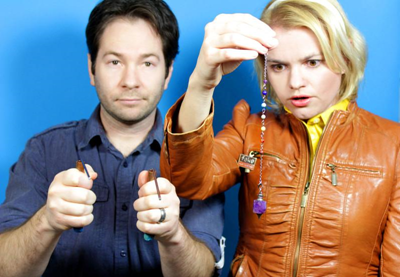
OH NO ROSS AND CARRIE
In a world of Instagram influencers slinging crystals and essential oils, or worse, people actually believing the Earth is flat, it can be hard to make sense of how some folks get involved with fringe science, conspiracy theories, or cults. I always wanted to get in the heads of these devout followers and understand how they get caught up in these crazy schemes and outrageous claims—without getting too close for comfort. Insert Ross and Carrie: two close friends who, to quote the tagline of the podcast, “show up so you don’t have to.” These two healthy skeptics go undercover to investigate anything and everything from the Church of Scientology to a private Costa Rican ayahuasca retreat, befriending and befoeing occult members, anti-vaxxers, Mormons, and ghost hunters alike. Ross and Carrie have joined more cults than I can even number, and have done unspeakable things to their own bodies in the name of science and personal testimony.
When it comes to this darker subject matter, most podcasts take a very serious and gloomy tone. But Ross and Carrie will have you laughing the whole way through, while also taking the subject matter and their jobs as investigative reporters very seriously. While not completely unbiased, they still approach their subjects with respect, dignity, and an open mind. The podcast goes all the way back to 2012, and while you can hop into any of their investigations at any point in time, it is hilarious to see how normal some of these investigations have become over time. Start with their 10-part series on joining the Church of Scientology—it will truly blow your mind. [Lauren Chouinard]
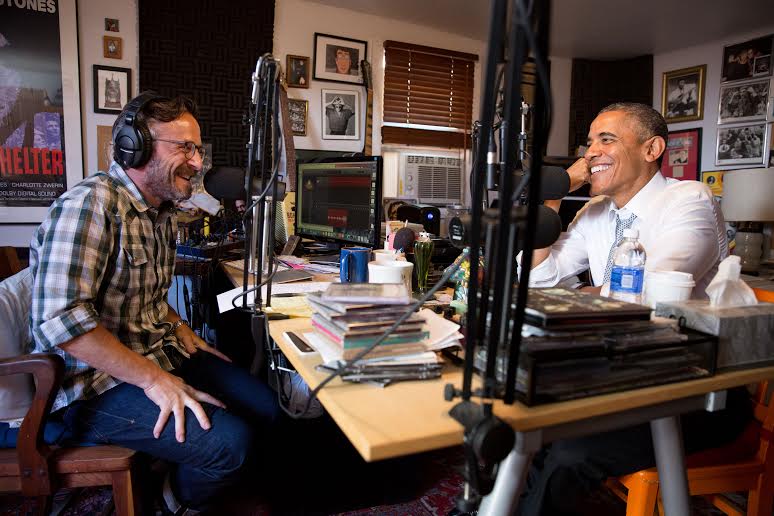
WTF WITH MARC MARON
Marc Maron is the most important talk show host of the 2010s. Hell, over 1000 episodes in, he’s quietly becoming one of the best of all time, something that doesn’t even feel hyperbolic to say this far into the podcast’s run. As the monoculture has become more and more splintered, coming to the garage for WTF has become the modern day equivalent getting called over to panel on Carson, a right of passage that any young entertainer dreams of—even the likes of Danny DeVito and Nathan Lane, members of a different golden era of Hollywood, have recently found themselves in awe of the invite and chatting with Marc.
You could easily run through the list of reasons why WTF WITH MARC MARON has endured. Certainly the long-form conversation quickly became the preferred mode of interview after podcasts became more firmly established this decade, so much so that even late night hosts like Stephen Colbert and (after his restructure) Conan O’Brien feel like they take more cues from the likes of Maron than they do the six-minute puff-and-promote pieces that historically occupied the medium. But Maron interviews often feel like an entry point into an artist or entertainer rather than a point of fan service. Certainly I get as excited as anyone to see someone I’m familiar with enter the garage—his recent Lily Tomlin interview was as delightful as anyone passively familiar with her work would assume—but it’s those that I’m less knowledgeable of that tend to be the most impactful. The interview for so long was a way to expand upon people whom we already found familiar, but because Maron is the constant, he becomes our access point, and the structure of WTF is one that allows us to grow increasingly familiar with the generals of someone regardless of our awareness.
My favorite WTF of this decade was with a man named Marc Spitz. A former SPIN writer and celebrated author, the two wax poetic about the 2000s indie rock scene, New York, drugs, loneliness, and the struggle with knowing ourselves. Like all good Maron conversations, it’s unwieldy in the best ways, but it now remains a singular remaining artifact: Spitz died at the age of 47 in 2017. Like the infamous Robin Williams interview, this recording is a genuine and unique piece of conversation; even if other interviews exist, this is certainly one of the only life-spanning documents we have of Spitz’s life. Death, like getting called to Carson’s couch or Maron asking who a guest’s “guys” are, is the great equalizer, but that we’ll have 80 minutes of leveling human conversation that exists forever I find to be a comfort. [CJ Simonson]
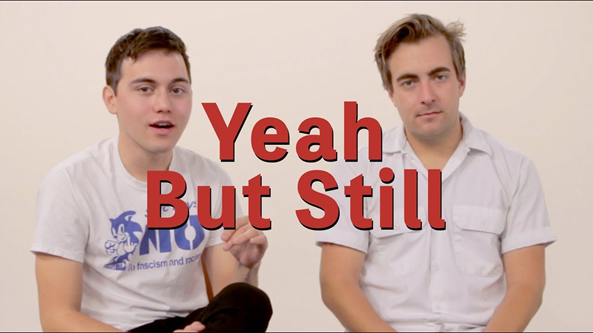
YEAH, BUT STILL
The podcasting medium is one that has featured vital conversations, hard-hitting investigative journalism, burgeoning experimentation in form and content, and a highlighting of voices that unfortunately can’t get as large and bright a platform in other spaces. It also has a stereotype it will never shake of featuring a lot of white noise programs where people who think they’re funny shoot the shit about nothing in particular. Thankfully, Jack Wagner and Brandon Wardell of YEAH, BUT STILL are very funny. While it helps if you’re familiar with Los Angeles due to the variety of hyperlocal Easter eggs that pop up, if you’ve at all enjoyed any content from the internet-raised class of comedians, YEAH, BUT STILL is a who’s-who of the Terminally Online that also works in a roster of heavy-hitters from your favorite stand-up specials and streaming service originals.
If that sounds snarky, it’s genuinely not meant to be; there are few programs that scratch the itch of a rapidly aging millennial adrift in the sea of New Media, consuming everything in sight and finding it just as engaging to hear from the “Zendaya Is Meechee” guy as it is to hear from dril as it is to hear from that nice, old, politically involved man that made all those sketches you and the boys used to pass around on someone’s cracked iPhone in the band room. Besides, that’s all ignoring the fact that Jack and Brandon are some of the most naturally engaging conversationalists the medium gave us during the decade as it grew up, with genuinely excellent talks with all-time greats such as Tom Green and exemplars of fish-out-of-water clashing of worlds such as Lizzo (yes, really) alike. YEAH, BUT STILL doesn’t feel like that age-old adage of being in a room with your friends, but instead feels like being in a room with every account on your Twitter feed. That may sound like a nightmare for some, but for those who are never going to log off, there’s no better place to be than the front lines. “He fuck-a da peach” will forever be my favorite podcasting moment of the 2010s. [Thomas Seraydarian]


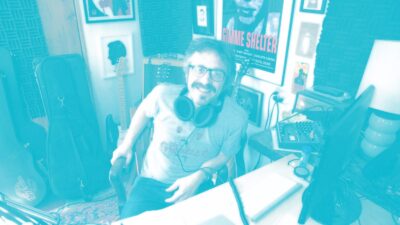
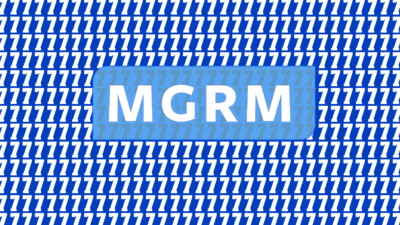

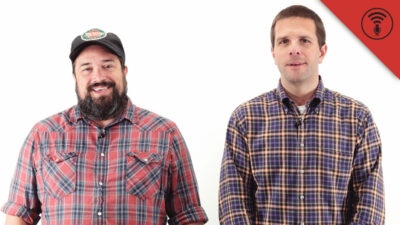


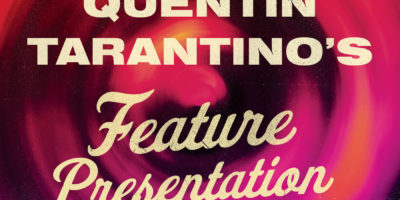
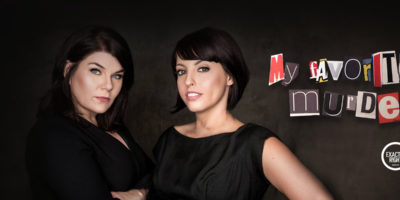
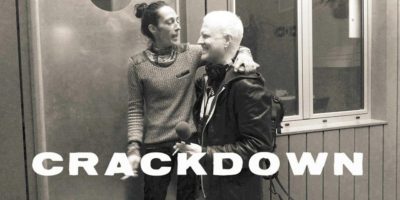





Comments